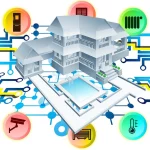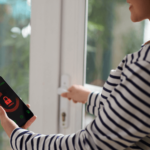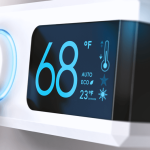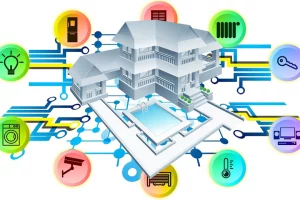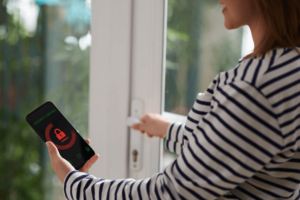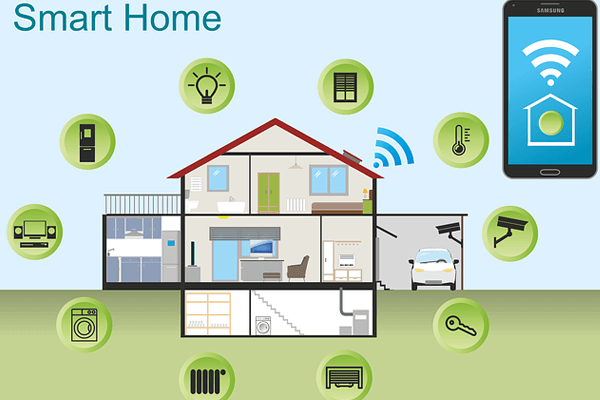
The Dos and Don'ts of Home Security
In an eye-opening report, Forbes highlights crucial dos and don'ts of home security. The article emphasizes the importance of regular system maintenance, secure Wi-Fi networks, and avoiding common pitfalls such as announcing vacation plans on social media. Experts also stress the need to regularly update security system software and use strong, unique passwords for all associated accounts.
Home Security's Secret Weapon
Many homeowners need to be made aware that their home security systems can also protect against flooding, providing additional protection for their property. Equipped with flood sensors, these systems can alert homeowners to potential water damage, allowing for timely intervention. Some advanced systems also offer fire and carbon monoxide detection, providing comprehensive safety coverage.
The Risks of Oversharing
A home security advisor warns against posting vacation plans on social media or neighborhood platforms like Nextdoor, as it can inadvertently advertise an empty home to potential burglars. The advisor suggests setting up automatic timers for lights and using innovative home technology to control home functions, creating the illusion of occupancy remotely.
DIY Home Security Systems
For those seeking more control over their security solutions, Digital Trends offers a comprehensive list of the best DIY home security systems on the market. These systems often allow for customization and can be a more cost-effective option for homeowners. Additionally, DIY systems often provide the flexibility of integrating with existing smart home devices, offering seamless control and monitoring.
The Smart Home Security Debate
As the popularity of intelligent home security systems grows, Concept Phones weighs in on the pros and cons of investing in these advanced technologies. While offering enhanced protection and convenience, they may also present potential vulnerabilities if not properly secured. Encryption and secure communication protocols are essential to safeguard smart home security systems from hacking attempts.
Protecting Rural Homes
Rural homeowners face unique security challenges, and Security.org addresses these concerns by recommending the best home security systems designed specifically for rural properties. These systems often incorporate features such as extended range and reliable connectivity to provide comprehensive protection. Backup power options and solar-powered security cameras are also recommended to ensure continuous security coverage during power outages or in remote areas.
The Importance of Home Cybersecurity
In a LinkedIn article, cybersecurity expert Jerry Eastman emphasizes the need for robust home cybersecurity measures to protect against hackers and other digital threats, reminding homeowners that securing their physical property is just one aspect of overall home security. Eastman suggests investing in reliable antivirus software, using a virtual private network (VPN) for secure browsing, and configuring a solid firewall to shield home networks from cyberattacks.
Security System Integration with Voice Assistants
Integrating voice assistants, such as Amazon's Alexa and Google Assistant, into home security systems has become increasingly popular. While this can enhance convenience and ease of use, it raises concerns about potential security vulnerabilities. Homeowners should ensure that their voice assistants have robust security features, such as voice recognition and two-factor authentication, to minimize the risk of unauthorized access.
Environmental Monitoring and Home Security
An often-overlooked aspect of home security is the integration of environmental monitoring. Advanced home security systems may offer features like air quality monitoring, temperature and humidity sensors, and even energy consumption tracking. These functionalities contribute to a safer and healthier living environment and help homeowners identify potential issues before they escalate, leading to costly repairs.
Choosing the Right Security System for Your Needs
With the vast array of home security options available, it can be overwhelming for homeowners to select the system that best meets their needs. Factors to consider include the property size, the specific security concerns and risks, and the desired level of customization and control. By researching various systems, consulting expert reviews, and assessing personal requirements, homeowners can make an informed decision to ensure the safety of their homes and families.
This compilation of expert advice and industry news underscores the importance of staying informed about the latest home security developments to protect against physical and digital threats. By understanding the strengths and weaknesses of various security systems, homeowners can make educated choices to safeguard their properties and loved ones. Additionally, regular updates and proactive maintenance of security systems play a crucial role in ensuring their effectiveness over time. Recent advancements, such as the Eaton SecureConnect vulnerability fixed in response to newly discovered security gaps, highlight the industry's commitment to addressing potential risks promptly. Staying engaged with reliable sources allows homeowners to adapt to evolving threats and maintain a robust defense against both traditional and emerging dangers.

James Smith is our editor. He is an accomplished and versatile news writer with over a decade of experience covering a wide range of topics, including politics, business, and real estate. Throughout his career, James has been dedicated to uncovering the truth and presenting unbiased, factual reporting to his audience.



